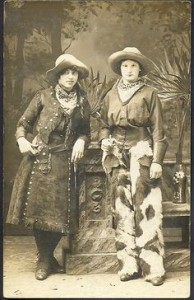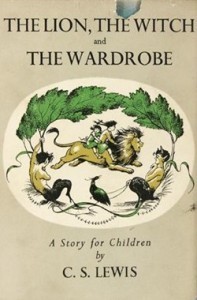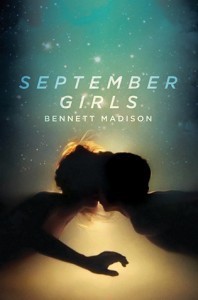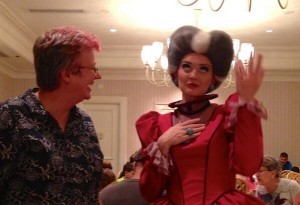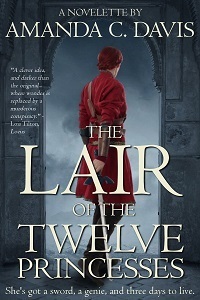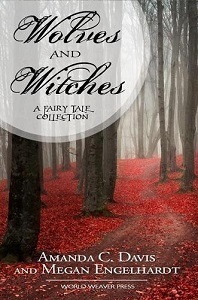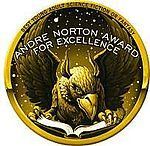Cat Rambo's Blog, page 62
February 21, 2014
Teaser from “Laurel Finch, Laurel Finch, Where Do You Wander?” (steampunk short story)
I haven't written these young women into the story yet, but they are lurking in the wings.
Another teaser from a steampunk short story I’ve been working. My codename for this world is Altered America, and this is the fifth short story I’ve placed in it.
Each time they stepped on the swaying platform between the cars, Laurel paused. Jemina couldn’t blame her. There was an exhilaration to the travel when you could feel the buffet of the passing air that was lacking when you were inside the actual cars.
They stopped outright on the last one. Laurel clenched the railing, shoulder-height for her, with both hands and looked out. Her hair lashed in the wind like an uncontrollable Medusa’s tangle.
“Will we see Indians?” she said.
“Quite probably,” Jemina said.
“And buffalo?”
“Undoubtedly.” Jemina had, as was her way, researched the trip well before embarking on it. She knew the distances between cities, and had the route plotted out on the map of the United States that hung in her head, colored with elementary school dyes, unfaded over the years.
Laurel took a deep breath of the wild air, sweet grass mingled with coal smoke, before reluctantly moving to the door.
Jemina stepped after her. They both nearly collided with the passenger coming out, who scowled at both of them, dividing the look between both and them and pronouncing them equally unsatisfactory. He was dressed in the Western style, with high-heeled boots, but with a tuft of lace at his untanned neck, a dandy’s puff that somehow set Jemina instantly against him.
February 20, 2014
You Should Read This: The Chronicles of Narnia by C. S. Lewis
The moment in Prince Caspian where Lucy and Susan are riding on Aslan's shoulders remains one of my favorites in fantasy literature.
The Narnia books changed the way generations of young readers would look at wardrobes. Their importance in the field of children’s fantasy literature cannot be overstated. I came to them early and had a boxed set which was, by my teen years, grubby and well-worn.What: The Chronicles of Narnia is the creation of C.S. Lewis. The seven books can be read in chronological order (starting with The Magician’s Nephew) or as Lewis wrote them (starting with The Lion, the Witch, and the Wardrobe. Children from our world find entrance into another, filled with talking animals and mythological creatures. The parallels with Christianity are strong, and intentional, but do not damage the book.
Who: Kids will love these, particularly avid readers, but scholars of both children’s fantasy and Christian literature will also want to read at least the first book, if not the series overall.
Why: Read these because they’re a chance to explore a classic fantasy landscape and books which influenced so many others to come, such as Lev Grossman’s The Magicians, Guy Gavrie l Kay’s Fionavar Tapestry series or Joy Chant’s Red Moon and Black Mountain.
When: Read these when you want a ripping good fantasy with no intrusion of complicated sexuality (other than the usual Freudian overtones). But read it also for a look at how female characters have been treated, and when you’re done, read this excellent reflection on Susan.
Where and how: Anytime, really. These are comfort books for me, particularly The Silver Chair, The Voyage of the Dawn Treader, and The Last Battle.
#sfwapro
February 19, 2014
You Should Read This: More Notable Young Adult and Middle Grade Speculative Fiction of 2013
September Girls managed to do something new with mermaids, which is something that gets increasingly hard to do.
I blogged last week about some of my favorite YA of 2013 and I wanted to add some more books to that list. These are all books that I wold’t have run across if I hadn’t been reading for the Norton jury, and I’m very pleased to have found them. With each I’ve identified both the genre (fantasy vs. science fiction) and the gender of the lead character, since I know that may affect some buying decisions.For what it’s worth, the overall breakdown here is: 4 male authors, 7 female authors; 6 fantasy, 5 sf; and
5 female leads to 6 male leads.
The Woken Gods by Gwenda Bond. Fantasy, female lead. I love the premise: “Five years ago, the gods of ancient mythology awoke around the world.” This is the setting for seventeen-year-old Kyra Locke’s adventures in search of her missing father and his secrets.
Homeland by Cory Doctorow. Science fiction, male lead. The sequel to Little Brother, Homeland stands on its own legs, with plenty of action and a lead character, Marcus Yallow, who is beleaguered by questions about releasing information in a plot that seems extraordinarily timely.
Maggot Moon by Sally Gardner Science fiction, male lead. An outstanding voice and unusual premise make the story told by social outcast Standish Treadwell well worth picking up. This was a 2014 Michael L. Printz Honor Book.
When We Wake by Karen Healey Science fiction, female lead. When sixteen-year old-Tegan Oglietti is unexpectedly moved forward a century in time, she finds herself in a future that’s far from benign, and one that will force her to act in order to keep others from sharing her fate.
Summer Prince by Alaya Dawn Johnson Science fiction, female lead. Johnson’s past books have been terrific and this one is no exception. It’s an interesting take of a future society that is fresh and well-written.
Man Made Boy by Jon Skovron Fantasy, male lead. Boy is, in fact, Frankenstein’s monster, and his plight is touching and funny and lovely, particularly when he runs away with the granddaughters of Jekyll/Hyde. This is a funny book in the way funny books should be, and will make your heart hurt even while you’re laughing.
In the Shadow of Blackbirds by Cat Winters Fantasy, female lead. Reviewers aren’t supposed to talk about the book as a physical object, but I still want to note that this is a handsome book with evocative illustrations that really add to the experience. Sixteen-year-old Mary Shelley Black has been sent to San Diego during the Spanish flu epidemic in 1918. When she begins to hear the voice of her recently-killed lover, she becomes involved with the Spiritualist movement. Rich historical details add a lovely texture to the book as well.
February 18, 2014
Teaser: Someday My Prince
I will admit, my sympathy is often more with the wicked stepmother than Cinderella. The stepmother is by far the more interesting character.
Here’s a modern piece I’m working on right now, “Someday My Prince.” I believe it’s fantasy; I’m about 2000 words in so far, and really not sure whether it’ll stretch another 500 or 5000 words.When Betty answered the apartment door, the man standing there was one of the most beautiful she’d ever seen. Tall, muscular, aquiline nose, dark hair… he looked like he should be riding a white stallion on the beach in a cologne ad.
“Miss Vincent?” he said.
She faltered in the doorway, looking at him. You never know what to expect in New York, and surely this man wasn’t that out of the ordinary, except for the utterly expensive lines of his suit.
“Miss Vincent?” he repeated.
“I really need to get to work,” she said. “I don’t have time to buy anything.”
“You don’t understand,” he said. “I’m Aidan, your Prince.”
She didn’t understand.
He smiled at her. “I’m your Prince. I’ve come.”
She really did need to get to work.
***
Veronica said, “You say he’s a Prince?”
“I think that’s what he said. He wouldn’t go away until I promised to have dinner with him tonight.”
Veronica’s eyebrow lifted. “You could have called the police.”
“He was just so…nice,” Betty said.
Veronica’s other eyebrow lifted. “So are you going to tell him?”
“Of course,” Betty said. “Then he’ll know this is some kind of mix-up.”
***
On her daily phone call, her mother said, “You lucky, lucky girl!”
Betty tried to interject something but her mother went on. “I mean, we’re all promised that our prince will come some day, but most of them seem to get lost in transit. I don’t know anyone who’s actually gotten one.”
“Mom,” Betty said. “What do you mean, we’re all promised one? Who does the promising?”
There was a brief silence on the other end of the line. “Well,” her mother finally said, “I guess I don’t really know. The world? God? Yes, that’s probably it. God promises if we’re good, someday our prince will come.”
“I think you’re confusing God and fairy tales,” Betty told her.
February 17, 2014
Books Galore on Sale!
I’ve teamed up with some amazing fellow SFWA writers on a group promotion for this week. We’ve all dropped the price on e-books, and I hope you’ll check some of the others out!
Here’s eight e-books, all knocked down to $2.99 or less for this week. You’ll notice both science fiction and fantasy, as well as a range of lengths.
Six years old + the ability to teleport = trouble.
The Eighth Succession by Don Sakers. $2.99, science fiction. This is an installment of Sakers’ extended Scattered Worlds series, and I can testify that it’s a fun read with plenty of nifty sfnal touches that fans will enjoy, coupled with characters that even people new to the genre will find engaging. Rikk Hoister is a genius with paranormal powers who is able to defeat the Imperial Navy…but he’s also got an even more powerful little sister, six year old Yewanda, who’s coming in search of him. Sakers takes the most delicious bits of traditional golden age science fiction and updates them for a textual dish the most jaded modern palate will savor. Boy, did I stretch that metaphor far enough? It’s good stuff. You’ll like it. (I interviewed Don for the SFWA blog last year.)
The Twelve Dancing Princesses story gets a fresh twist in this version, which originally appeared in Intergalactic Medicine Show.
The Lair of the Twelve Princesses by Amanda C. Davis. 99 cents, fantasy. Bay has nothing to show for her years of military service but the clothes on her back, a bad leg, and a sardonic imp in a bottle who’s more harm than help. When she hears an open call for bodyguards for the twelve headstrong princesses, she thinks the job could reverse her fortunes. Unfortunately, her new charges are under a nightly curse, and everyone seems determined to keep the details a mystery–including its victims.
Luckily, Bay has a trick up her sleeve. Her imp owes her three wishes, and is desperate to grant them. She’s been hoarding his magic for an emergency, but it might be time to cash in: according to a fine-print clause in her contract, if she cannot solve the princesses’ curse in three nights, she’ll be executed the following dawn.
Ghosts and music mingle in this first installment of a serial novel.
Master of the Opera, Act 1: Passionate Overture by Jeffe Kennedy: 99 cents, fantasy. Fresh out of college, Christine Davis is thrilled to begin a summer internship at the prestigious Sante Fe Opera House. But on her first day, she discovers that her dream job has a dark side. Beneath the theater, a sprawling maze of passageways are rumored to be haunted. Ghostly music echoes through the halls at night. And Christy’s predecessor has mysteriously disappeared. Luckily, Christy finds a friend and admirer in Roman Sanclaro, the theater’s wealthy and handsome patron. He convinces her there’s nothing to fear–until she hears the phantom’s voice for herself. Echoing in the labrynths. Singing of a lost love. Whispering her name: Christine.
The story of Beauty and the Beast gets retold with an erotic flair.
Petals and Thorns, by Jeffe Kennedy. 99 cents, fantasy. This retelling of Beauty and the Beast is a seductive version. If Amarantha can resist her cloaked and terrifying husband, she gains his entire fortune and will be allowed to return to her family and a normal life. But the Beast seduces her at every turn, exposing, binding, tormenting, and pleasuring Amarantha until she no longer knows her own deepest desires. Increasingly desperate to break the curse that chains his humanity, the Beast drives Amarantha past every boundary. But her desire for a normal life may jeopardize the love that will save them both.
Both wolves and witches find their side of the fairytale told within this collection.
Wolves and Witches by Amanda C. Davis and Megan Engelhardt. $2.99, fantasy. In this collection of sixteen short stories, the authors take on fairytales and deftly deliver updated versions.
“Wolves and Witches is a fabulous collection of re-imagined fairy tales. I made the mistake of starting it late one evening and couldn’t go to sleep until I had read it all. With their dark prose and evocative poetry these sisters have done the Brothers Grimm proud.”
–Rhonda Parrish, Niteblade Fantasy and Horror Magazine
“It’s in the details that Davis and Engelhardt get you. I don’t know if it’s love or obsession or maybe just succumbing to the spell, but what stays with me is the tenor and texture of these tales retold — whether the fabric of a dancing shoe, the hollowness of bones in the wind, or the sharp critique of stereotyped social norms. Let yourself be enchanted and enjoy.”
–Dan Campbell, Bull Spec
“Sisters Amanda C. Davis and Megan Engelhardt are the female Brothers Grimm.”
–K. Allen Wood, Shock Totem
Intriguing speculation with a multi-gendered society.
The Worth of a Shell by M.C.A. Hogarth. 2.99, science fiction. The first in the Stone Moon trilogy.
Born to a harsh world, we Jokka have evolved three sexes to survive: neuter, male and female. Twice in our lives we may change from one to another. A change we accept with grace… or resignation. It was our way. …until one female defied all tradition: Dlane Ashoi-anadi, revolutionary, intentionally childless, runaway.
This is not her story.
This is mine.
I am Thenet Reña-eperu, female-guardian, voice of orthodoxy… and Dlane’s first and dearest companion. This is the tale of how we changed each other… and how that changed everything.
And what do I have on sale? Click through on story collections Eyes Like Sky and Coal and Moonlight or Near + Far in the sidebar, and you’ll see they’re at $2.99 just for this week. Please spread the word!
You Should Read This: The Complete Drive-In by Joe R. Lansdale
I find the book's free-wheeling nature inspirational, although it's a gloomy message at the heart of it all.
Joe R. Lansdale is a favorite writer; this was my entrance into his work and it hooked me thoroughly.What: The Drive-In by Joe R. Lansdale has two sequels, The Drive-In 2: Not Just One of Them Sequels and The Drive-In 3: The Bus Tour. Underland Press did a collected edition a few years back that is terrific, but it looks as though it’s out of print now. The story begins when a few friends go to the All Night Horror Show at a drive-in theater and find themselves transported to an alternate dimension, forcing the theatergoers to live on popcorn, fountain drinks, and eventually each other. Then it gets weird.
Who: Those willing to abandon themselves to the book, to strap themselves into the funhouse ride Lansdale has prepared will have the time of their life.
Why: Read this for dialogue that flows over you. For a gradual creep into weirdness that disorients and amazes all at once.
When: Read this when you want to be reminded that a good writer can take us wherever he or she likes. WHen you need to be shown that you can be as weird and surreal and downright odd in your writing as you like, as long as you do it with panache.
Where and how: Lansdale is a terrific reader – if you get a chance to hear him in person, do it! If not, try an audio book, in order to appreciate the way it flows. And don’t read it in scraps. Sit down and stay a spell.
#sfwapro
February 16, 2014
Speculative Reminiscences: Weekly Recap for 2/15/2014
 There’s plenty of room left in my upcoming online classes.
There’s plenty of room left in my upcoming online classes.
The big news is that I will be guest-editing the Women Destroying Fantasy issue of Lightspeed. We are still working out details, but it will be open subs.
I provided a teaser from WIP Laurel Finch, Laurel Finch, Where Do You Wander?
I made it onto this list of women horror authors you need to read. (Here’s the book they suggest, which is serendipitously 2.99 as part of promotion for next week!)
I talked about good things on the 27GoodThings Blog.
I sold a story to Beneath Ceaseless Skies, huzzah! Also, ten stories completed so far this year, which feels terrific.
For Writers:
If you’re writing a character who is experiencing a particular emotion, this article may be useful.
Great post from Teresa Frohock about Being a Woman and Writing Dark Fiction
Bud Sparhawk talks about our recent collaboration
Please consider supporting this Kickstarter of bisexual fiction.
A writing book Kickstarter worth supporting.
Mary Gordon on writing by hand
Kurt Vonnegut teaches.
Books I Talked About for You Should Read This:
My favorite YA novels of 2013, including books by Holly Black, Chelsea M. Campbell, Sarah Beth Durst, Em Garner, Lydia Kang, Cori McCarthy, and Sean Williams
Science fiction classic Flowers for Algernon by Daniel Keyes
Things of Note:
Victoria Strauss writes about a recent SFWA controversy in On Petitions and Flame Wars: My Thoughts About SFWA and Change
Charles Coleman Finlay also talks about some aspects of the controversy.
Timewasters!
Kids read to shelter cats. Heartmelting.
Photos of a dikdik, the world’s smallest antelope
Pictures of rats with teddy bears
February 14, 2014
Teaser: More from Laurel Finch
Interested in learning how to get opportunities to interview writers and publish the results as well as has to conduct yourself in an interview? I've got a one hour class coming up on just that, on February 19, 7-8 PM PST.
This is the steampunk world (Altered America) I’ve been writing in lately, and I’m pleased to say Beneath Ceaseless Skies just took another of the stories set in it, “So Little Comfort.” The title of this story is “Laurel Finch, Laurel Finch, Where Do You Wander?”She was awake. She jolted upright, disturbing Laurel, who said something drowsily. Jemina stroked her hair with her right hand, settled the child back into her lap. Her heart still hammered uncomfortably.
She looked out the window into the darkness and could see only the reflection of the car’s interior for a moment. Then as her eyes picked out detail, she saw the stars hanging far overhead, the blaze of the Milky Way, a curdle of starlight spilling over the plains that rolled out as far as the eye could see.
Chuggadrum, chuggadrum, the sound of the wheels underfoot, the everpresent vibration working its way through her body as they hurtled through the night towards Seattle.
They’d promised her a laboratory of her own. A budget. Assistants.
Things she could do without interference. That was worth a lot, for a woman in a field that held so few other of her sex.
“I have nightmares sometimes too,” Laurel said.
Jemina’s hand sleeked over the curve of Laurel’s skull, cloth sliding over glossy hair.
“We all do.”
“What are yours about?”
“The war. What about yours?”
Laurel lay silent so long that Jemina thought she had gone back to sleep. But finally she said, “How my parents died.”
Jemina’s fingers stilled as though frozen. She waited.
“We were in the house and they came,” Laurel said. “My uncle said they were supposed to stay on the battlefield and no one knew they went the wrong way.”
Her voice was subdued, thoughtful.
“It would have been all right, but papa heard them at the door and he went and opened it. That was how they got in.”
Jemina saw in her mind’s eye, despite her attempt to force it away, the scene: the man mowed down, devoured with that frightening completeness that zombies had, before they moved on to the rest of the house…
“How did you get away?” she asked.
“I jumped out the window and ran away. I tried to get my brother first, but it was too late, so I ran.”
“Your brother?”
“He was just a baby. He couldn’t run.” Laurel moved her head in slow negation. “Too late.”
Jemina closed her eyes, feeling the story wrenching at her heart.
These things happened in war. They were sad, yes, but unavoidable.
The wheels screeched as the train unexpectedly slowed. Both of them sat up to look out the window.
“Whose are those men?” Laurel asked.
“I don’t know.” But she suspected the worst, given the fact that the group had their bandanas tugged up around their faces, that many had pistols or Springfield rifles in their hands.
“They’re bandits!” Laurel’s voice was excited.
“Yes,” Jemina admitted.
They waited. Around them, everyone was abuzz, but stayed in their seats.
The front door of the car swung open and two men entered, both holding pistols, red cloth masking everything except their eyes. Both were hatless, their stringy hair matted with dust and sweat.
“We’re looking for a fellow name of J. Iarainn,” one called to the car at large. “You here, Mr. Iarainn? If not, I’m going to start shooting people one by one, cause according to the manifest, you’re in this car.”
Jeminia held up a hand. “I am Jemina Iarainn.”
Her gender astonished them. They squinted at her before exchanging glances.
“You’re headed to Seattle and the War Institute to work? Some kinda necromancery?”
“Yes to Seattle, yes to the War Institute. No to necromancy. I hold joint degrees in medicine and engineering, specializing in artificial limbs.”
Exasperation kept her calm. Why should these dunces not believe a female scientist could exist? And necromancy — she was, by far, tired of that label. She worked with devices for the products of such technology, but she wielded the forces of science, of steam and electricity and phlogiston.
February 12, 2014
You Should Read This: Flowers for Algernon by Daniel Keyes
Charlie is one of the great characters of SF and the story resonates with his voice. If you're interested in finding out more about how to write great dialogue, check out my Speaking in Another's Voice: Dialogue online class tonight, 7-8 PM PST. Cost is $29.99 ($19.99 for former and current students) For more details, click on "Take an Online Class with Cat" at the top of this page.
Flowers for Algernon was originally a short story by Daniel Keyes that appeared in 1959 in the Magazine of Fantasy & Science Fiction and won the Hugo Award the following year. Seven years after the story’s publication, it appeared in novel form under the same name, and shared that year’s Nebula Award with Samuel R. Delany’s Babel-17.What: The story is told by Charlie Gordon and involves intelligence experiments being done on both Gordon and the title character Algernon, who is a white mouse.
Who: Anyone who wants to be decently well read in science fiction should read this book. It’s a classic, and one referenced and discussed elsewhere. One of my favorite stories by Susan Palwick, the title story in The Fate of Mice, is told from Algernon’s POV.
Why: Read it because you will want to know Charlie, to hear him tell his story, and to see a master use the device of an unreliable narrator in a way that takes your heart and breaks it over the book’s knee. Read it to discover a story that has survived the test of time and will, I strongly believe, continue to do so.
When: Read this when you’re thinking about things like how a character gets the reader on their side, as well as how what a character doesn’t say is sometimes as telling as what they do. Read this when you are ready to sit down and read it in one full sitting, preferably, which is doable for faster readers since it’s a slender book.
Where and how: Read it where you won’t mind weeping; public spaces (like airplanes) are unsuitable because you will have to have a heart as hard as winter to not tear up some. This is, in fact, one of the best examples of a fabulous tearjerker of a story that I know.
#sfwapro
February 11, 2014
You Should Read This: Favorite YA Novels of 2013
The Andre Norton Award for Young Adult Science Fiction and Fantasy is an annual award presented by the Science Fiction and Fantasy Writers of America (SFWA) to the author of the best young adult or middle grade science fiction or fantasy book published in the United States in the preceding year.
This year I’ve been reading for the Andre Norton Award, which has been great in that a ton of books have arrived and insane in that a TON of books have arrived and need to be read. I wanted to call out some of my favorites so far.The Coldest Girl in Coldtown by Holly Black: Vampires, yes. But an interesting twist on them, and a protagonist who drags us along to Coldtown to find its secrets.
The Rise of Renegade X by Chelsea M. Campbell: This is listed as Jan 2014 for the paperback edition, but I believe the e-version was self-published in 2013. It’s a terrific teen superhero adventure, featuring a protagonist trying to figure out if he’s a hero or a villain. IT has a sequel as well, The Trials of Renegade X.
Conjured by Sarah Beth Durst: I don’t usually like protagonists who wake up with amnesia, but here Eve and her situation grabbed me and made me care much faster than such narratives usually do. The book managed to surprise me, and did so in a really engaging way.
Contanimated by Em Garner: This is a zombie story, so I didn’t expect to like it much. But the zombies are caused by a diet drink, and the challenge is integrating the contaminated into society. When that contaminated is your mother, it’s a whole new issue. The ending is not as satisfying as it could be – things feel a bit too easy — but overall this was a gripping, hard to put down book.
Control by Lydia Kang: Plenty of corporate-controlled futures in the YA I read this year, and this was one of the more interesting ones. The ensemble of teen characters are engaging, entertaining, and above all believable.
The Color of Rain by Cori McCarthy: This features a fairly adult theme, in that the protagonist prostitutes herself to get herself and her brother off planet. But the sex is fairly low-key and not depicted in the thorough way it might be for adults. It’s a good story with a charismatic main character in desperate straits.
Twinmaker by Sean Williams: This book is an extended exploration of the implications of matter transporters. It’s a lot of fun, fast-paced, and ingenious.
#sfwapro

